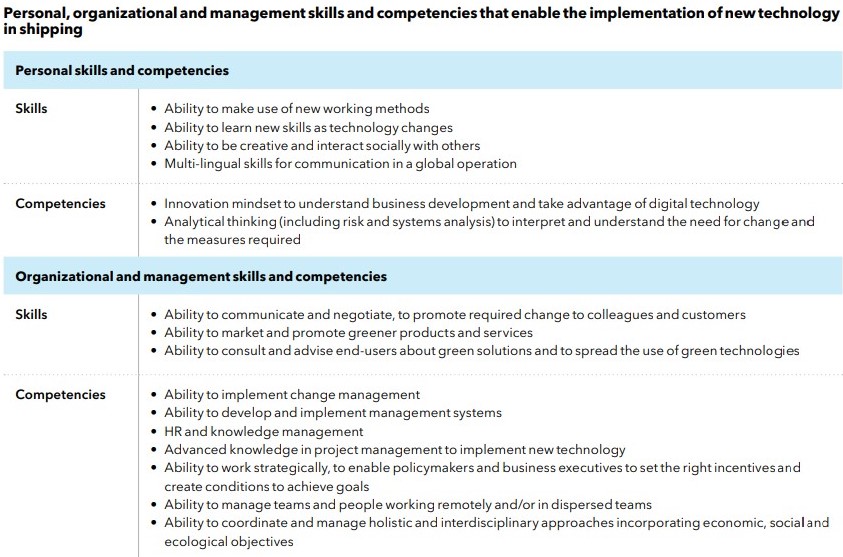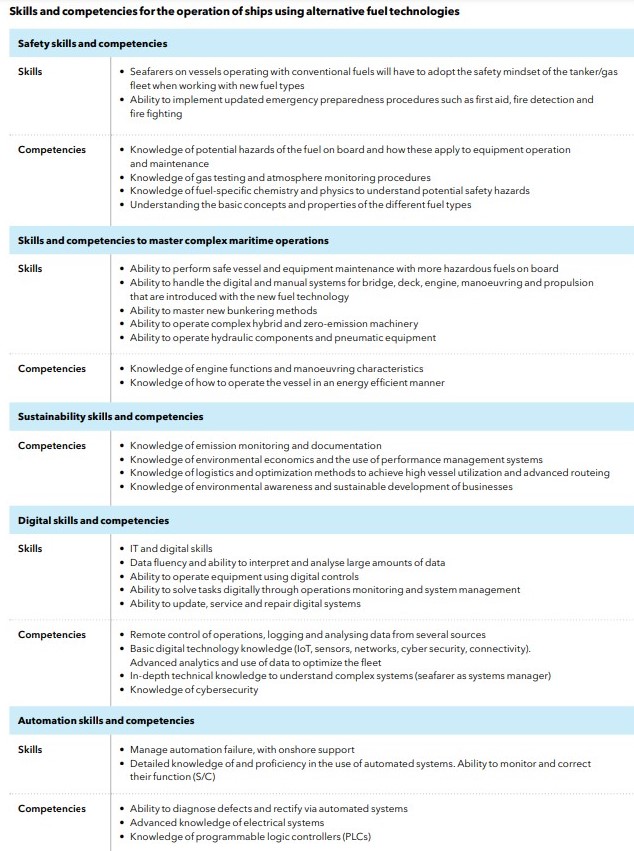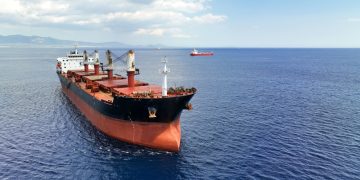In a recent study, DNV describes the skills that every seafarer needs to have or develop in order to keep up with the latest decarbonization technologies.
Skills and competencies enabling the implementation of new technologies
The study finds that maritime operations will become more digitalized and automated as the shipping industry implements alternative fuel technologies. This suggests that the industry will need to map the skills and competencies required to implement decarbonization-related technology.
The literature review concludes that personal, organizational and management skills are a prerequisite to exploit the possibilities of future decarbonization-related technology. A study conducted by Menon Economics highlights that both individual and organizational competence will be needed to exploit the possibilities afforded by digital and other technologies.
The EU SkillSea report finds that the competence required by the STCW will not be sufficient for tomorrow’s seafarers. Leadership, language and communication skills, as well as soft skills to manage teams and people working remotely, will also be needed. This study also highlights that a new operational paradigm needs to be created to integrate people and digital technology.
The Hamburg School of Business and Administration points out that workers will need to acquire creative and social skills to qualify for post-automation jobs, and that the profound changes caused by the technological transformation will have to be managed through communication and negotiation.
Personal, organizational and management skills and competencies enable the shipping industry to implement the new technology that accompanies decarbonization, with the complementary skills surrounding them
said DNV.

Seafarer skills and competencies for the decarbonization of shipping
The qualitative component of the study, underpinned by the literature review, found that skills already in place in the tanker/gas segment today will be relevant for ships operating with alternative fuel technologies.
For example, the interviews pointed out that the skills needed to operate ships using fuels like methanol and ammonia could be similar to the skills required on tanker vessels, as both ammonia and methanol are carried as cargo today. These skills should include the unique risks posed by these fuels and their properties
the report noted.
The most challenging fuels were said to be those where the industry does not already have extensive experience of transporting them as bulk cargo, such as hydrogen.
The safety mindset required when operating on vessels carrying hazardous cargo, including the related safety challenges, impacts how all parts of the maritime operation are planned and performed, as well as how emergency preparedness is handled.
In addition to heightened safety skills and a ‘safety mindset’, the ability to master complex maritime operations and sustainable ship operations were found to be of utmost importance for decarbonized shipping.
In particular, participants in this study highlighted that the industry needs increased digital competencies and skills, as an increased uptake of digital technology and automation on board is expected.
It is anticipated that the officers on board will act as ‘system managers’, utilizing digital and automation systems to perform their daily tasks.



































































